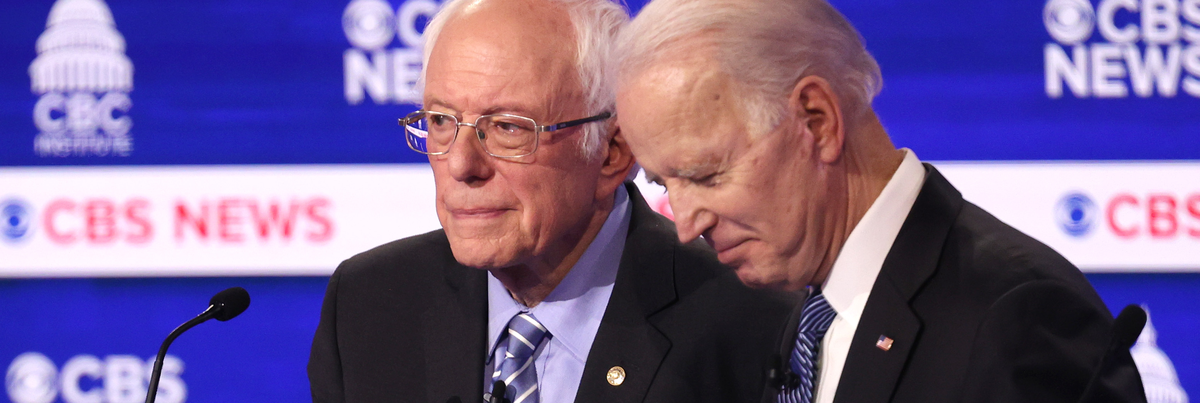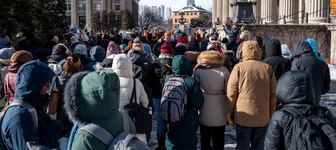For much of America, the 2020 presidential campaign that had, for months, dominated news programs and social media has faded into the background as coverage of the coronavirus has spiked.
The number of people paying a lot of attention to the 2020 election has slipped from 43 percent to 36 percent according to the most recent Economist/YouGov Poll. Most Americans have trained their focus instead on the COVID-19 disease. The number of Americans who are following news about the viral outbreak "very closely" has more than doubled, from 24 percent to 53 percent over the same span. This week, nine in ten (90%) US adults are following the COVID-19 news "very closely" or "somewhat closely."
Just because fewer people are paying attention doesn’t mean that politics have stopped. But the coronavirus seems to be changing the shape of the election.
President Donald Trump remains behind Democrats when it comes to registered voters’ current choice in November, but the contest is close. Vice President Joe Biden, the Democratic frontrunner, narrowly leads Trump (46% vs 42%) as the top choice for registered voters. However, the president has an advantage when it comes to expectations for victory. More than half (52%) of registered voters expect he will win.
Trump’s most potent advantage in his reelection campaign, the robust economy, may be in jeopardy because of the virus. Nearly 50 percent of Americans think the economy is getting worse — a clear reaction to the coronavirus.
But the president’s handling still receives high marks. By a margin of 50 percent to 39 percent, Americans currently approve of how the president is handling the economy. However, the public is just about as likely to think the economy would get better as get worse if the president were re-elected or if the Democrat won.
The president also receives positive ratings for his handling of the coronavirus this week.
Other Takeaways from This Week’s Poll
- Bernie or bust? Vermont Senator Bernie Sanders remains in the race for the Democratic nomination but trails Biden in delegates needed to win. Most in the Economist/YouGov poll think he should suspend his campaign before the convention. However, two-thirds of those who prefer Sanders as the nominee do not want him to leave the campaign before the convention.
- Congress voting remotely: Several members of Congress have been diagnosed with coronavirus, while others are self-isolating. Congressional rules don’t allow for long-distance voting in the House of Representatives or the Senate. Americans believe they should. Nearly two-thirds of the public think Members of Congress should be able to vote from their offices away from D.C. This change may be one of the few issues Republicans and Democrats agree on.
- Senators who sold stocks should resign: As for the senators who sold stock after receiving a classified briefing on the coronavirus, Americans have one word for them: RESIGN. And they say this by more than four to one, 62% to 14%. 68% of Democrats and 59% of Republicans agree.
Related: Most Americans don’t trust President Trump for accurate COVID-19 information says CBS/YouGov Poll
See the toplines and crosstabs from this week’s Economist/YouGov Poll
Image: Getty











